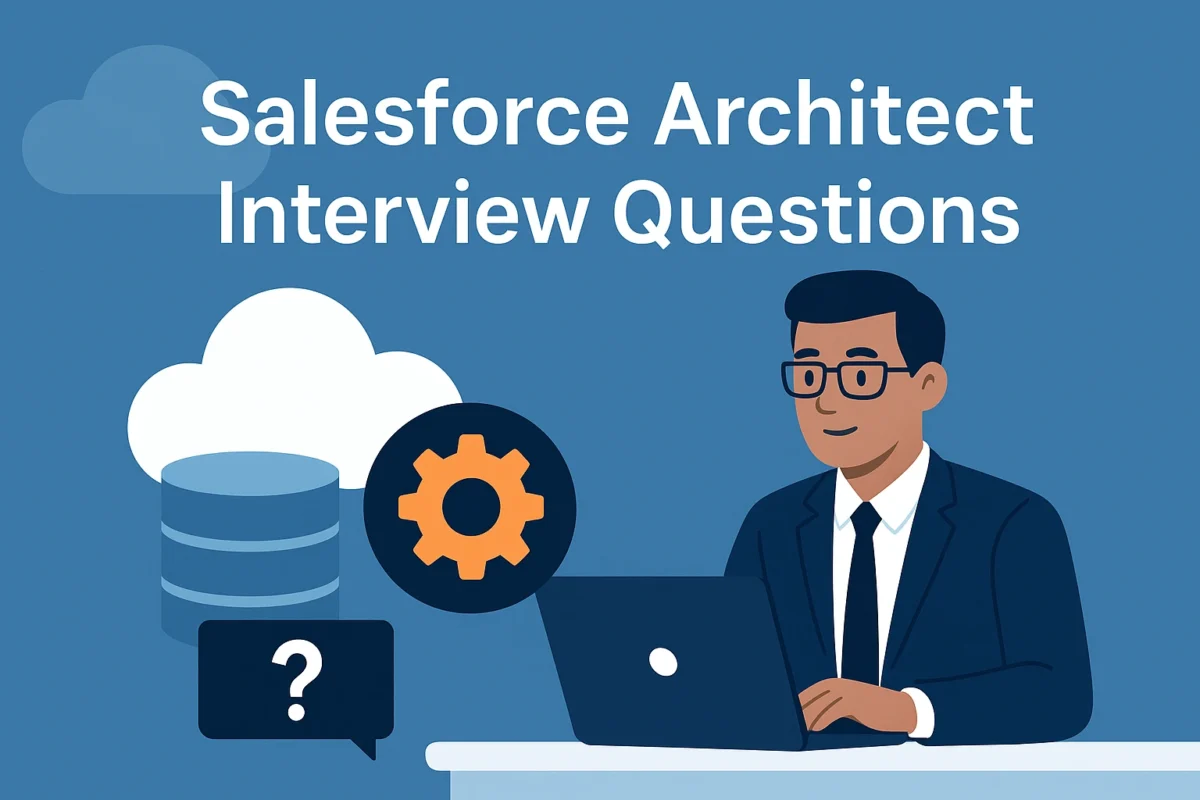
If you are preparing for a Salesforce Architect interview, you already know the role demands a blend of technical expertise, problem-solving skills, and strategic thinking. This guide covers the most commonly asked Salesforce Architect interview questions, along with tips to help you stand out in your next interview.
Who is a Salesforce Architect?
A Salesforce Architect is responsible for designing secure, scalable, and high-performing Salesforce solutions. They lead technical strategies, guide development teams, and ensure that implementations align with business needs. There are multiple architect roles such as Technical Architect, Solution Architect, and Application Architect.
Top Salesforce Architect Interview Questions and Answers
1. Can you explain the role of a Salesforce Architect?
Answer:
A Salesforce Architect designs and oversees Salesforce solutions, ensuring they meet business requirements, follow best practices, and can scale for future growth. They also mentor teams, choose the right Salesforce products, and integrate them with existing systems.
2. What are the different types of Salesforce Architects?
Answer:
-
Application Architect – Focuses on data modeling, sharing & security, and application design.
-
System Architect – Specializes in integrations, performance, and scalability.
-
Technical Architect – Combines both areas to deliver end-to-end Salesforce solutions.
-
Domain Architect – Focuses on specialized Salesforce clouds (e.g., Marketing Cloud, Commerce Cloud).
3. How do you design a scalable Salesforce data model?
Answer:
-
Normalize and denormalize data where appropriate.
-
Minimize the use of master-detail relationships in high-volume objects.
-
Use External Objects for large datasets.
-
Apply proper indexing for faster queries.
4. What is the difference between Role Hierarchy and Sharing Rules?
Answer:
-
Role Hierarchy: Grants access based on user’s position in the org hierarchy.
-
Sharing Rules: Provide exceptions to the default sharing model for specific groups or roles.
5. How do you handle governor limits in Salesforce?
Answer:
-
Use bulkified Apex code.
-
Optimize SOQL queries and avoid queries inside loops.
-
Use Queueable, Batch Apex, and Future methods for asynchronous processing.
-
Leverage caching mechanisms.
6. Can you explain the integration patterns in Salesforce?
Answer:
-
Request-Reply (Synchronous API calls)
-
Fire-and-Forget (Asynchronous API calls)
-
Batch Data Synchronization
-
Remote Call-In
-
UI Update Based on Data Changes (Streaming API)
7. How do you ensure security in a Salesforce implementation?
Answer:
-
Use Field-Level Security and Object-Level Security.
-
Apply Profile & Permission Sets correctly.
-
Use Two-Factor Authentication.
-
Monitor API usage and apply IP restrictions.
8. Describe the difference between Salesforce Classic and Lightning.
Answer:
-
Lightning offers a modern UI, component-based framework, and better performance.
-
Classic is the older interface with limited features.
Most new features are Lightning-exclusive.
9. How do you approach a Salesforce multi-org strategy?
Answer:
-
Analyze business needs.
-
Decide between single-org or multi-org based on data sharing, compliance, and regional needs.
-
Ensure a proper integration strategy between orgs.
10. What is your process for handling a complex Salesforce project?
Answer:
-
Gather and analyze requirements.
-
Create a solution blueprint.
-
Design scalable architecture.
-
Oversee development and QA.
-
Ensure performance testing before deployment.
Pro Tips for Cracking a Salesforce Architect Interview
-
Keep your Salesforce certifications updated (CTA, System Architect, Application Architect).
-
Practice real-world scenarios instead of memorizing answers.
-
Stay updated on Salesforce releases and new features.
-
Highlight integration experience and security best practices.
FAQs on Salesforce Architect Interviews
Q1: What is the salary of a Salesforce Architect?
A Salesforce Architect can earn anywhere from $120,000 to $200,000+ per year depending on experience and location.
Q2: Do I need coding skills for a Salesforce Architect role?
Yes, while it’s not always mandatory for Solution Architects, having strong Apex, LWC, and API knowledge is a huge advantage.
Q3: How many years of experience do I need to be a Salesforce Architect?
Typically 8–12 years of Salesforce experience, with at least 3–5 years in a leadership or design role.
You may like : Salesforce Trigger Interview Questions
Final Thoughts
Preparing for Salesforce Architect interview questions requires more than just theoretical knowledge — you must demonstrate your ability to design, scale, and secure Salesforce solutions in real business contexts. By focusing on real-world problem-solving and best practices, you can make a lasting impression on recruiters and hiring managers.

